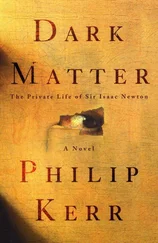Philip Kerr - A Man Without Breath
Здесь есть возможность читать онлайн «Philip Kerr - A Man Without Breath» весь текст электронной книги совершенно бесплатно (целиком полную версию без сокращений). В некоторых случаях можно слушать аудио, скачать через торрент в формате fb2 и присутствует краткое содержание. Год выпуска: 2013, Издательство: Quercus, Жанр: Триллер, на английском языке. Описание произведения, (предисловие) а так же отзывы посетителей доступны на портале библиотеки ЛибКат.
- Название:A Man Without Breath
- Автор:
- Издательство:Quercus
- Жанр:
- Год:2013
- ISBN:нет данных
- Рейтинг книги:4 / 5. Голосов: 1
-
Избранное:Добавить в избранное
- Отзывы:
-
Ваша оценка:
- 80
- 1
- 2
- 3
- 4
- 5
A Man Without Breath: краткое содержание, описание и аннотация
Предлагаем к чтению аннотацию, описание, краткое содержание или предисловие (зависит от того, что написал сам автор книги «A Man Without Breath»). Если вы не нашли необходимую информацию о книге — напишите в комментариях, мы постараемся отыскать её.
A Man Without Breath — читать онлайн бесплатно полную книгу (весь текст) целиком
Ниже представлен текст книги, разбитый по страницам. Система сохранения места последней прочитанной страницы, позволяет с удобством читать онлайн бесплатно книгу «A Man Without Breath», без необходимости каждый раз заново искать на чём Вы остановились. Поставьте закладку, и сможете в любой момент перейти на страницу, на которой закончили чтение.
Интервал:
Закладка:
‘Captain Gunther, this is Doctor Batov,’ said the orderly. ‘He’s in charge of the scientific laboratories here at the academy. He speaks German and I’m sure he will be able to assist you.’
When the orderly left us alone, Batov looked sheepishly at the tanker’s helmet. ‘This ridiculous hat, it keeps the head warm,’ he explained. ‘It’s cold in this hospital.’
‘I noticed that, sir.’
‘The boilers are coal-fired,’ he said, ‘and there’s not so much coal about for things like heating a hospital. There’s not much coal around for anything.’
I offered him a cigarette and he took one and tucked it behind his ear. I lit one myself and looked around. The lab was reasonably well equipped for the purposes of instructing Russian medical students; there were a couple of work benches with gas taps, burners, chemical hoods, balances, flasks, and several stereo microscopes.
‘What can I do for you?’ he asked.
‘I was hoping I might be able to use one of your stereo microscopes for a while,’ I said.
‘Yes, of course,’ he said, ushering me towards the instrument. ‘Are you a scientist, captain?’
‘No, sir. I’m a policeman. From Berlin. Before the war we’d just started using stereo microscopes in ballistics work. To identify and match bullets from the bodies of murder victims.’
Batov paused by the stereo microscope and switched on a light beside it. ‘And do you have a bullet you wish to examine now, captain?’
‘No. It’s some typewritten papers I wanted to take a look at. The paper got damp and some of the words are hard to read.’ I paused, wondering how much I could tell him. ‘Actually, it’s more complicated than that. These papers have been exposed to cadaveric fluid. From a decaying body. They were inside a boot in which the human leg wearing it had disintegrated down to the bone.’
Batov nodded. ‘May I see?’
I showed him the papers.
‘Even with a stereo microscope this will be difficult,’ he said, thoughtfully. ‘Best of all would be to use infrared rays, but unfortunately we’re not equipped with that kind of advanced technology here at the Academy. Perhaps it would be better to have them treated in Berlin after all.’
‘I have good reasons for preferring to see what can be achieved here right now in Smolensk.’
‘Then you’ll probably need to wash these documents with chloroform or xylol,’ he said. ‘I could do this for you, if you liked.’
‘Yes. I’d be grateful if you could. Thanks.’
‘But may I ask, exactly what are you hoping to achieve?’
‘If nothing else, I’d like to be able to find out what language the papers are written in.’
‘Well, we can treat one sheet of paper, perhaps, and see how that works.’
Batov went to look for some chemicals and then started to wash one of the pages; while he worked I sat and smoked a cigarette and dreamed that I was back in Berlin, having dinner with Renata at the Adlon Hotel. Not that we ever did have dinner at the Adlon, but it wouldn’t have been much of a daydream if any of it had been remotely possible.
When Batov had finished cleaning the page he dried it carefully, flattened the paper with a sheet of glass and then arranged the page underneath the prism of the microscope.
I drew an electric light a little closer and looked through the eyepieces while I adjusted the zoom control. A blurred word moved into focus. The alphabet wasn’t Cyrillic and the words weren’t written in German.
‘What’s the Russian word for soldier?’ I asked Batov.
‘ Soldat .’
‘I thought so. Zolnierz . That’s the Polish word for soldier. Here’s another. Wywiadu . No idea what that means.’
‘It means intelligence,’ said Batov.
‘Does it?’
‘Yes. My wife was Ukrainian-Polish, sir, from the Subcarpathian province. She studied medicine here before the war.’
‘Was?’
‘She’s dead now.’
‘I’m sorry to hear that, doctor.’
‘Polish.’ Batov paused and then added. ‘The language on the document. That’s a relief.’
I looked up from the eyepieces. ‘Why is that?’
‘If it’s in Polish it means I can offer to help you,’ explained Batov. ‘If it was in Russian – well, I could hardly betray my own country to the enemy, now could I?’
I smiled. ‘No, I suppose not.’
He pointed at the stereo microscope. ‘May I have a look?’
‘Be my guest.’
Batov looked through the eyepieces for a moment and then nodded. ‘Yes, this is written in Polish. Which makes me think that a better division of labour would be if I read out the words – in German, of course – and you wrote them down. That way – in time – you would know the entire contents of the document.’
Batov sat up straight and looked at me. He was dark and rather earnest, with a thick moustache and gentle eyes.
‘You mean one word at a time?’ I pulled a face.
‘It’s a laborious method, I do agree, but it has the merit of also being certain, don’t you think? A couple of hours and perhaps all of your questions about this document might be answered and perhaps, if you agreed, I might earn a little bit of money for my family. Or perhaps you might give me something I can trade on Bazarnaya Square.’
He shrugged. ‘Alternatively, you are welcome to borrow the stereo microscope and work on your own, perhaps.’ He smiled uncertainly. ‘I don’t know. To be perfectly honest I’m not used to German officers asking me for permission to do anything in this academy.’
I nodded. ‘All right. It’s a deal.’ I took out my wallet and handed over some of the occupation Reichsmarks the bureau office in Berlin had issued me with. Then I handed him the rest of the bills as well. ‘Here. Take it all. With any luck I’m flying home tomorrow.’
‘Then we had better get started,’ said Batov.
It was late when I got back to Dnieper Castle. Most of the men were having dinner. I joined the officers’ table in the mess where chicken was on the menu. I tried not to think about the three ragged children I’d seen in Smolensk that afternoon while I was eating, but it wasn’t easy.
‘We were beginning to worry,’ said Colonel Ahrens. ‘Can’t be too careful around here.’
‘What did you think of our cathedral?’ asked Lieutenant Rex.
‘Very impressive,’ I said.
‘Glinka, the composer, came from Smolensk,’ added Rex. ‘I’m rather fond of Glinka. He’s the father of Russian classical music.’
‘That’s nice,’ I said. ‘To know who your father is. It’s not everyone who can say that these days.’
After dinner the colonel and I went to his office for a smoke and a quiet word – or at least as quiet as could be achieved given that it was next to the castle’s cinema theatre. Through the wall I could hear Suss Oppenheimer pleading for his life in front of the implacable burgers of the Stuttgart town council. It made an uncomfortable soundtrack to what promised to be an equally uncomfortable conversation.
He sat behind his desk facing a good deal of paperwork. ‘You don’t mind if I work while we talk? I have to compile these duty logs for tomorrow. Who’s manning the telephone exchange, that kind of thing. I have to post this on the noticeboard before nine o’clock so everyone knows where they’re supposed to be tomorrow. Von Kluge will have my guts if there’s a problem with our telecommunications when Hitler’s here.’
‘He’s flying from Rastenburg?’
‘No, from his forward HQ, at Vinnitsa, in the Ukraine. His staff call it the Werewolf HQ, but don’t ask me why. I believe he’s going on to Rastenburg tomorrow night.’
‘He gets around, does our leader.’
Читать дальшеИнтервал:
Закладка:
Похожие книги на «A Man Without Breath»
Представляем Вашему вниманию похожие книги на «A Man Without Breath» списком для выбора. Мы отобрали схожую по названию и смыслу литературу в надежде предоставить читателям больше вариантов отыскать новые, интересные, ещё непрочитанные произведения.
Обсуждение, отзывы о книге «A Man Without Breath» и просто собственные мнения читателей. Оставьте ваши комментарии, напишите, что Вы думаете о произведении, его смысле или главных героях. Укажите что конкретно понравилось, а что нет, и почему Вы так считаете.












